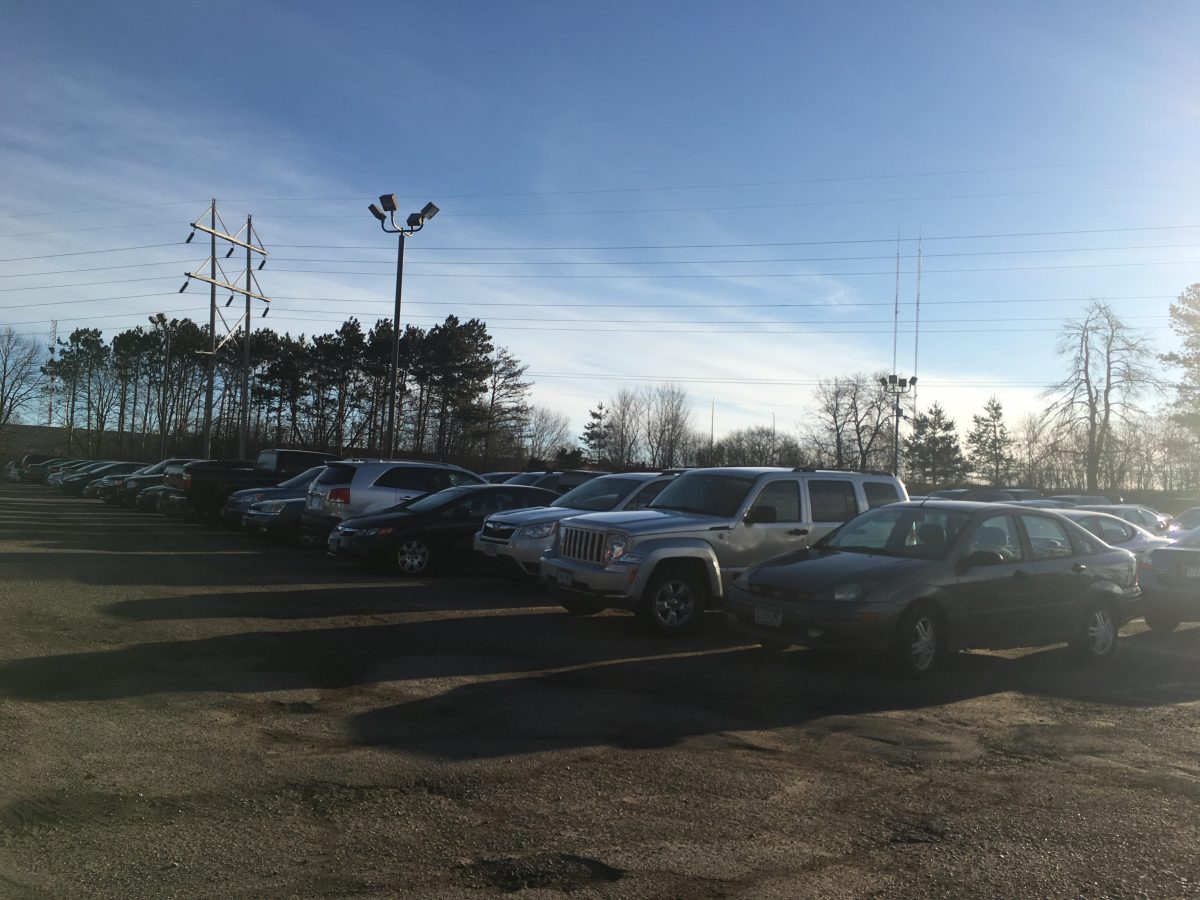When students struggle to find parking, Bethel’s security and safety has an option.
By Annalise Beeson
Senior nursing major Grace Watson ran across the west parking lot with her roommate into the main buildings carrying Starbucks, already late for their class. The pair was supposed to be the first to give a presentation in their class and since they couldn’t find a spot in any other lot, Watson created her own parking spot in the dirt lot that would later house the broomball rink. Huffing and puffing, Watson and her roommate started their presentation while trying to slow their breathing.
“Parking sucks and I hate it here,” Watson said.
By 9 a.m. most weekdays, students struggle to find parking spots on Bethel’s campus. Commuters, faculty, staff and visitors also struggle. Watson lives in Heritage Hall and consistently finds it difficult to get a spot in the three rows saved for her building in the west lot.
“I pay for a parking pass and don’t get a spot when other people don’t pay and still get a spot.” – Alyssa Jones, Bethel student
Commuter Alyssa Jones spends up to 10 minutes looking for a parking spot after she comes back midday from her practicum at a local school.
“I pay for a parking pass and don’t get a spot when other people don’t pay and still get a spot. It’s kind of all dumb,” Jones said.
Students often blame Bethel’s security and safety for the lack of parking. Nathan Katterson, Associate Director of Security Operations of the department, argues the main purpose of Security and Safety is to create and promote peace on campus.
“We would rather be known as the people you call when you’re hurt or scared or when your stuff gets stolen and not as the campus ticketing police,” said Katterson. “We hope the benefit of what we are doing is greater than the attempt to move against someone.”
Katterson explained officers don’t know when giving out tickets if the car will be getting a fine or just a warning. The office finds ticketing effective – more than 80 percent of people who receive a ticket are one-time offenders. The department does their best to extend grace to drivers but will immobilize or tow a car when other actions have not proven effective.
Katterson and the department realize parking can be difficult for commuters especially during the middle of the day, which is why they recommend drivers park at the Anderson Center. The Anderson Center is the largest lot at Bethel, with 773 spaces, including the reserved and disability spots. The next largest commuter lots are the west lot with 545 and the east lot with 238 spots.
A constant problem security sees is students creating their own spots on dashed lines or in the grass.
“We printed off fliers to go with the tickets (when people create their own spots) for the Anderson Center and shuttle system. You could drive around for 20 minutes looking for a spot, park on the grass and end up with a ticket or you could plan ahead and go to the Anderson Center, which has a shuttle every 15 minutes, and do it that way,” Katterson said.
As far as fixing the problem, Bethel has already used the maximum amount of concrete allowed to the school since they are located in the Rice Creek Watershed Area, meaning Bethel look for other solutions to tight parking than paving new lots. Both Watson and Jones suggested a number system or a parking garage as a solution. Katterson explained that a parking garage would cost anywhere from $20-40 million per ramp, making it extremely hard to imagine a garage in the near future.
Katterson suggests the best solution is to utilize the Anderson Center, which many faculty and staff already do. The department is looking into expanding the shuttle hours at the Anderson Center to make it more available for students who stay late on campus.

![Nelson Hall Resident Director Kendall Engelke Davis looks over to see what Resident Assistant Chloe Smith paints. For her weekly 8 p.m. staff development meeting in Nelson Shack April 16, Engelke Davis held a watercolor event to relieve stress. “It’s a unique opportunity to get to really invest and be in [RAs’] lives,” Engelke Davis said, “which I consider such a privilege.”](http://thebuclarion.com/wp-content/uploads/2024/05/041624_KendallEngelkeDavis_Holland_05-1200x800.jpg)















